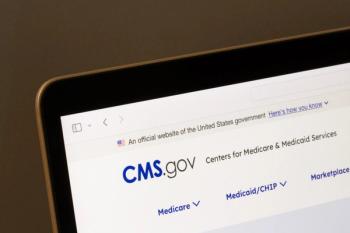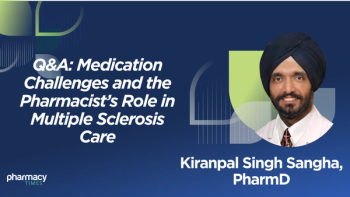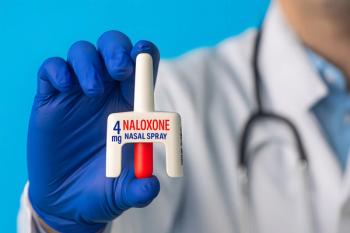
CMS announces the selection of 15 high-cost drugs for Medicare price negotiations, aiming to reduce prescription costs for older adults and taxpayers.

CMS announces the selection of 15 high-cost drugs for Medicare price negotiations, aiming to reduce prescription costs for older adults and taxpayers.


Key updates include treatment thresholds, dietary recommendations, and management strategies.

Pharmacists play a vital role in identifying and managing primary immunodeficiency diseases, enhancing patient outcomes through immunoglobulin therapy and education.

David Shusterman, MD, reveals how reducing alcohol enhances GLP-1 therapy, improving insulin regulation, kidney health, and overall metabolic outcomes.

Dextromethorphan offers unique mechanisms and potential benefits over traditional antidepressants.

FDA approves a new quadruplet therapy for newly diagnosed multiple myeloma, enhancing treatment options for patients ineligible for stem cell transplant.

Pharmacists play a vital role in supporting multiple sclerosis patients by addressing medication challenges, educating on treatments, and navigating insurance hurdles.

Experts say SMS-based engagement tools can help pharmacists improve medication adherence and reduce hospital readmissions by addressing common patient barriers such as forgetfulness and cost.

Updated guidelines on PA call for expanded screening, treatment, and monitoring, creating opportunities for pharmacists to screen all patients with hypertension.

Explore how pharmacists enhance access to care for multiple sclerosis patients, tackling barriers in diagnosis, treatment, and patient education.

Cardiotoxic signals released from the kidneys may drive cardiovascular risk in patients with chronic kidney disease, opening the door to earlier detection and targeted treatment.

GLP-1 receptor agonist effectiveness and tolerability can be significantly improved through targeted pharmacist counseling on alcohol reduction.

Recent research reveals no link between menopause hormone therapy and dementia risk, urging further studies to clarify its effects on cognitive health.

Effective medication management requires active patient involvement and understanding.

The FDA expands Cerezyme's approval for treating non-CNS symptoms of type 3 Gaucher disease, marking a significant advancement in patient care.

The study found that anxiety and depression in those with Parkinson disease were significantly associated with fatigue severity.

Pharmacists play a crucial role in educating patients with multiple sclerosis about treatment options, adverse effects, and navigating insurance challenges.

FDA's draft guidance on MRD and CR as end points accelerates multiple myeloma therapy approvals, enhancing patient access and transforming oncology practices.

New research reveals how specific gut bacteria in infants may reduce the risk of allergies and asthma, offering potential preventive strategies.

The American Heart Association (AHA) has released new guidance highlighting numerous obstacles that individuals with obesity face when treating and managing their condition, including limited access to healthy foods and weight stigma.

Pharmacists secure patient safety by suggesting naloxone with opioid medications based on the MME thresholds, comedications, risk factors, and state regulations.

Various OTC analgesic and anesthetic products can be effective in providing prompt, temporary relief from discomfort.

Explore how radio frequency identification (RFID) technology enhances medication safety, operational efficiency, and patient care in health care and pharmacy settings.

Reducing alcohol intake alongside GLP-1 therapy may significantly improve outcomes for patients with obesity or diabetes risk.

Interest in intravenous push administration of antibiotics is regaining popularity as fluid shortages arise.

Ben Long, MD, and Weston Blakeslee, PhD, discuss how pharmacists can integrate automated SMS tools to reduce readmissions while minimizing workflow burden.

Research reveals COVID-19's lasting effects on brain health, highlighting cognitive impairments in patients with long COVID even after recovery.

Recent research links depression to increased risk of Lewy body dementia and Parkinson disease, emphasizing the need for early detection and awareness.

Pharmacists are essential in guiding patients taking TNF inhibitors regarding supplement use, the risks of "immune boosters," and potential immunomodulatory therapy interactions.